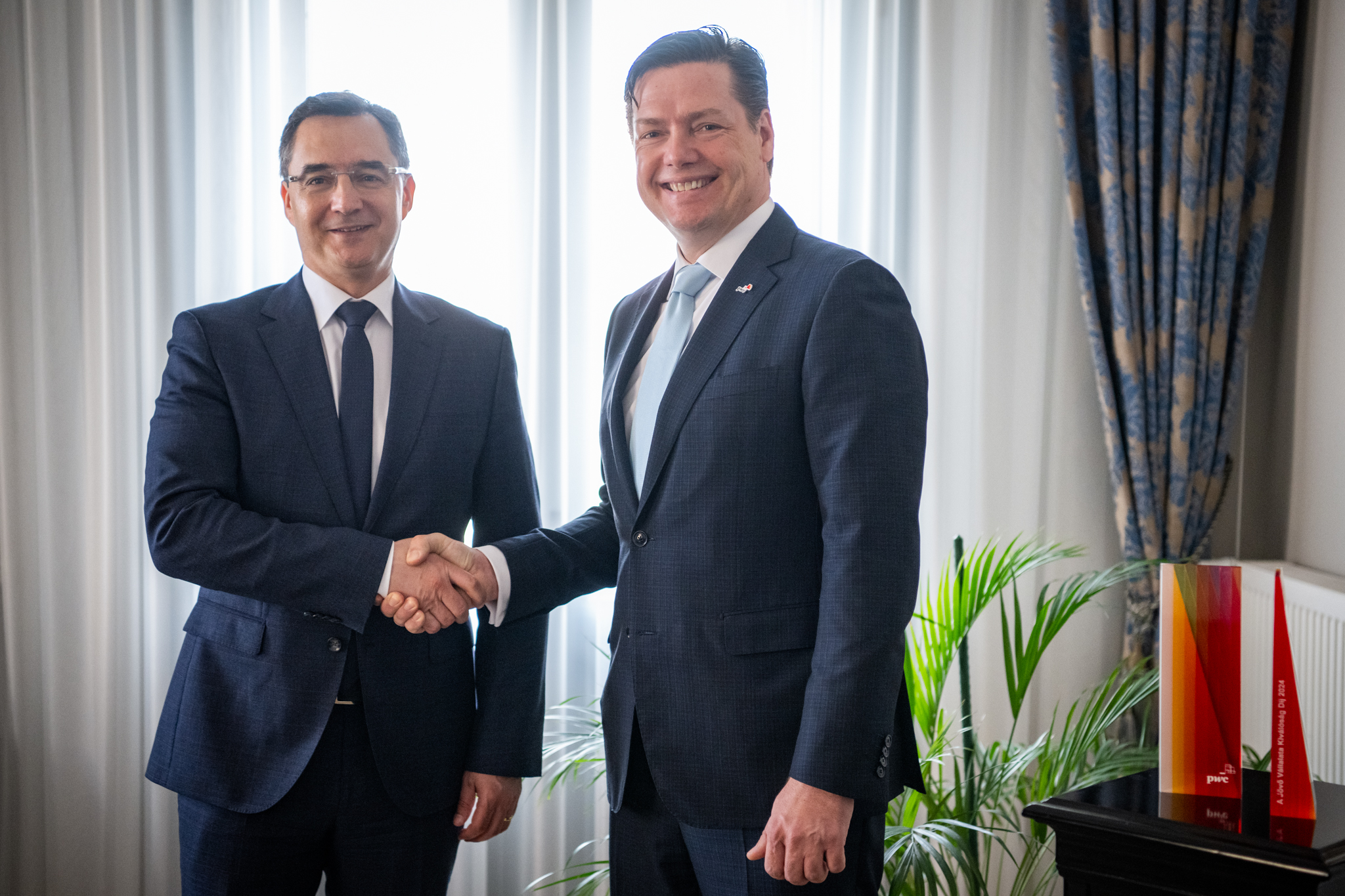Private Healthcare Expands Online

PopTika/Shutterstock
Private healthcare in Hungary has been gradually improving in the past few years, both in terms of the breadth of services on offer and competition. Emergency restrictions introduced with the arrival of COVID-19, however, have accelerated a new practice: video consultations wherever possible.
Private healthcare generally means shorter waiting times, better access to specific doctors and higher quality facilities when compared to public medicine. It all comes at a price though: private healthcare is significantly costlier than its public counterpart.
“Clearly, the one advantage of the public system is its cost, which should be free. The advantages of private healthcare is quick access to medical care, usually through scheduled appointments,” FirstMed-FMC Kft. founder and CEO Dennis A. Diokno tells the Budapest Business Journal.

Dennis A. Diokno
It seems for many the convenience of the service outweighs the costs, as private healthcare has been picking up in the past decade, emerging as a worthy competitor to social security provided by the state.
“The boom in private clinic development over the past 10 years has created a good competition which has encouraged clinics to provide better customer service,” Diokno points out.
This tendency is well-supported by private providers’ growth. “In our 21 years, we’ve seen our patient numbers increase in all but four years. In 1999, we had 2,620 patient visits. Last year, we had nearly 15,000,” the founder says.
At launch, FirstMed’s services were limited to general practice, gynecology, pediatrics, and orthopedics. Gradually, the hospital added further specialties such as cardiology, dermatology, ENT, surgery, urology, and others, now taking in more than 20 other areas. Most recently, it added gastroenterology services provided from their new endoscopy center.
Rózsakert Medical Center (RMC), another provider that has been around for almost two decades, have seen similar growth.
Growing Base
“The story of RMC began in 2001 with a single clinic. Today, we have 110 physicians serving 40,000 patients annually on a space of 1,000 square meters. Our patient base, 40% of which comprises expats living in Hungary, has grown steadily over the 19 years of our existence,” RMC founder and managing director Gyula Csermely tells the BBJ.
RMC started out providing basic outpatient services, internal medicine, pediatric care and OB-GNY (obstetrics and gynecology) treatment. Today, it says it covers the entire spectrum of outpatient services, serves patients across 54 specialist areas and has its own radiology department, in addition to a dental clinic and an operating theater for one-day surgical procedures.
With the advent of the novel coronavirus, inevitably, private healthcare providers have also changed their ways when it comes to receiving and treating patients.
“Until recently, we could only receive patients with urgent medical needs. People could not come for elective procedures or regular medical checks. This situation reduced our patient volume by nearly 65%, with a corresponding decrease in revenue,” FirstMed’s Diokno explains.
“FirstMed’s financial situation was very strong prior to the start of the pandemic, so we made it through the crisis without having to lay off or fire staff,” Diokno adds.
To counter the loss in volume and revenue, FirstMed, like many of its peers, started relying more on telemedicine services than before.
“We had begun developing FirstTelemedicine some months before the pandemic. We were able to expedite the launch and provide online consultations immediately after the government implemented restrictions,” Diokno said.

Gyula Csermely
Specialist Pre-screening
RMC adopted a similar approach to the COVID-19 restrictions. “Since the state of emergency began, RMC has shifted to a new way of providing services, we effectively opened a new clinic to serve our patients as safely as possible online, or even in person. Most of the services were switched to video consultations, but, where possible due to the nature of the examination, we were able to welcome patients following specialist pre-screening and subject to stringent rules,” Csermely said.
“Our objective was to not leave people, our patients and colleagues battling heroically in state healthcare, alone in this situation, as well as to stay on our feet as a business without having to lose any staff,” Csermely added.
Video consultations are not new to RMC either. “Our service portfolio has included online consultations for several years now. Demand for these has intensified in recent months due to the COVID-19 pandemic, and we can report that they passed the test with flying colors,” Csermely adds.
The private clinic operates an RMC Smart Clinic mobile application that makes it possible to book online consultations; video conferences can also be accessed through the app.
Although the restrictions are being eased, and people are practicing social distancing less strictly, telemedicine services may well remain popular with private healthcare patients due to their speed and ease.
For in-person consultations, additional precautions are being implemented to minimize risks to patients and staff. “Pre-screening, temperature checks, and additional disinfecting will likely become standard operating procedure,” Diokno believes.
With the easing, RMC has also returned to providing all its services in person at their clinic. “However, we have kept the strict preventative procedures in place to ensure the maximum safety for our patients. Our entire service portfolio is therefore now available, but maximum safety has been maintained,” Csermely insists.
The coronavirus has been a significant disruptor to all aspects of our lives, and while it may slow down the consolidation the Hungarian private sector had been experiencing before, it shall not come to a halt.
“Private healthcare had been changing even before COVID-19. There was a lot of consolidation in the industry with numerous mergers and acquisitions. The pandemic may slow some of this activity, but we are likely to see a continued evolution of the market,” Diokno concludes.
SUPPORT THE BUDAPEST BUSINESS JOURNAL
Producing journalism that is worthy of the name is a costly business. For 27 years, the publishers, editors and reporters of the Budapest Business Journal have striven to bring you business news that works, information that you can trust, that is factual, accurate and presented without fear or favor.
Newspaper organizations across the globe have struggled to find a business model that allows them to continue to excel, without compromising their ability to perform. Most recently, some have experimented with the idea of involving their most important stakeholders, their readers.
We would like to offer that same opportunity to our readers. We would like to invite you to help us deliver the quality business journalism you require. Hit our Support the BBJ button and you can choose the how much and how often you send us your contributions.








